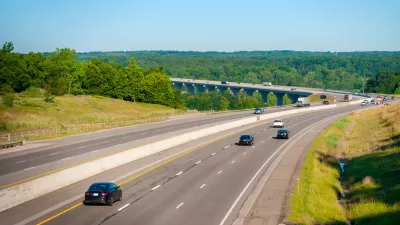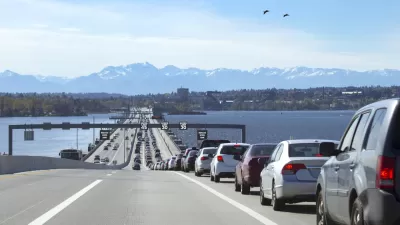Thanks to bipartisan cooperation and strong leadership from Gov. Kay Ivey, the Heart of Dixie passed it first fuel tax hike in 27 years. The 21 cents per gallon tax will increase by 10 cents in three increments by 2021 and then indexed to inflation.
Last July, Alabama had the ninth lowest gas tax in the nation, according to the Tax Foundation. The 21.09 cents per gallon gas tax (18 cents excise tax plus 3.09 cents in other state taxes/fees per API) hadn't been raised since a bruising political fight in 1992.
"Today, March 12, 2019, is a historic date for the state of Alabama," Gov. Kay Ivey stated proudly in a bill-signing ceremony (YouTube video) marking the state Senate passage of HB 2, otherwise known as the Rebuild Alabama Act, on a 28-6 earlier in the day.
"The vote marked a continuation of the bipartisan support for a plan Ivey and Republican legislative leaders called their top priority," reported Mike Cason of the Alabama Media Group.
The House had passed the legislation by a vote of 84-20 last week. Ivey called a special session to handle the issue and the legislation passed within the minimum five days.
The plan received bipartisan support in the 105-member House, with only two of the 28 Democrats voting against it. In the Senate, 22 of the 28 Republicans voted for the plan and six of the eight Democrats voted for it.
"Rep. Bill Poole, R-Tuscaloosa, sponsored the bills with the backing of House Speaker Mac McCutcheon, R-Monrovia, who said he had worked on the issue for five years," wrote Cason in a second article on the bill's passage. "Poole said Alabama’s funding for roads is the lowest in the southeast."
While the vote was bipartisan, the Alabama Republican Party executive committee launched a petition effort to defeat the tax hike while it was in the House. "Only 18 of the 77 House Republicans voted against the tax," added Cason.
House Minority Leader Anthony Daniels, D-Huntsville, supported the plan and said the result shows the Democrats can work effectively with Ivey and the Republican majority in the Legislature.
On Sept. 1, the gas and diesel taxes will increase by six cents, followed by two 2-cent hikes on Oct. 1, 2020, and Oct. 1, 2021. Indexing for inflation begins October 1, 2023, "with the increase or decrease of the excise tax rate not exceeding $.01 per gallon."
Revenues split between state, counties, cities and Port of Mobile
The 10-cent per gallon increase will raise an estimated $320 million a year to fund road construction and maintenance. The Alabama Department of Transportation will get 67 percent of the money, counties will get 25 percent and cities 8 percent.
About $12 million a year will be allocated to a bond issue to widen and deepen the shipping channel in the port of Mobile to increase its capacity for cargo traffic. Federal funds will pay for 75 percent of that project.
EV and hybrid vehicle fees
Two other fees were included in the bill: $200 per year electric vehicle fee and a $100 annual hybrid fee, effective New Years Day, 2020. "It will then increase by $3 every four years starting in 2023," reports Alex Stokes for WHNT News 19. As in other states, these fees are meant to ensure that operators of vehicles that pay little if any fuel taxes also help maintain roads, but the bill goes a step further.
But $50 of the EV fee (and $25 of the hybrid fee) will go to EV infrastructure, such as electric chargers...but disappears and the registration fee drops to $150 once EVs make up 4% of all cars in the state.
Hat tip to Eleanor Lamb of Transport Topics.
FULL STORY: Gov. Kay Ivey signs Alabama gas tax hike into law

Planetizen Federal Action Tracker
A weekly monitor of how Trump’s orders and actions are impacting planners and planning in America.

Map: Where Senate Republicans Want to Sell Your Public Lands
For public land advocates, the Senate Republicans’ proposal to sell millions of acres of public land in the West is “the biggest fight of their careers.”

Restaurant Patios Were a Pandemic Win — Why Were They so Hard to Keep?
Social distancing requirements and changes in travel patterns prompted cities to pilot new uses for street and sidewalk space. Then it got complicated.

Platform Pilsner: Vancouver Transit Agency Releases... a Beer?
TransLink will receive a portion of every sale of the four-pack.

Toronto Weighs Cheaper Transit, Parking Hikes for Major Events
Special event rates would take effect during large festivals, sports games and concerts to ‘discourage driving, manage congestion and free up space for transit.”

Berlin to Consider Car-Free Zone Larger Than Manhattan
The area bound by the 22-mile Ringbahn would still allow 12 uses of a private automobile per year per person, and several other exemptions.
Urban Design for Planners 1: Software Tools
This six-course series explores essential urban design concepts using open source software and equips planners with the tools they need to participate fully in the urban design process.
Planning for Universal Design
Learn the tools for implementing Universal Design in planning regulations.
Heyer Gruel & Associates PA
JM Goldson LLC
Custer County Colorado
City of Camden Redevelopment Agency
City of Astoria
Transportation Research & Education Center (TREC) at Portland State University
Camden Redevelopment Agency
City of Claremont
Municipality of Princeton (NJ)





























